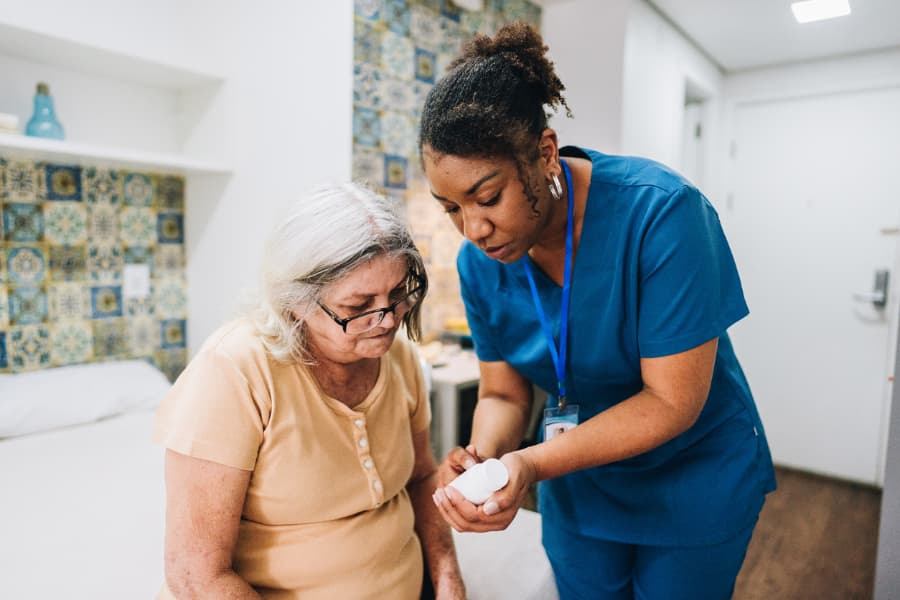
The ways practical nurses provide healthcare have changed with societal advancements. Incorporating a healthcare practice or technological innovation can necessitate approaching their work differently. Closely following the evolution of their industry can help these medical professionals have long careers providing effective patient care. Prism Career Institute offers a Practical Nursing program in Philadelphia, Pennsylvania, and Cherry Hill, New Jersey. Here, we explain the key evolutions of practical nurse duties.
Impacts from COVID-19 and New Technology
The COVID-19 pandemic forced several changes to healthcare practices, as widespread illnesses strained the medical system. To help provide care for all, providers implemented various alternative services that continue today. The crisis made practical nurses re-evaluate where to place most of their attention in their work, sparking a rise in the use of new healthcare applications. Some of the biggest advancements in practical nursing include:
Telemedicine
To open more rooms within facilities and promote social distancing, many healthcare providers began offering telemedicine in 2020. As more patients began using this service out of necessity, they found that they enjoyed its benefits. Telemedicine opened healthcare access to more people. According to a 2023 Rock Health report, telemedicine usage by patients over 55 rose by 12 percent. The report also noted a 13 percent increase in rural communities.
Practical nurses continue to use this technology to assist patients with limited mobility, who are far from a healthcare venue, or who prefer having an appointment from the comfort of home.
Providers can incorporate wearable devices, mobile apps, and monitoring systems into telemedicine care to check a patient’s health status. Any observations of their activity can help determine at-home steps for care, or if a patient should come in for an appointment. Some benefits of telemedicine for practical nurses include increased patient access, more flexible scheduling, and remote work opportunities.
A Renewed Focus on Mental Health
While some patients embrace the benefits of telemedicine, others seek care through in-person meetings. The pandemic drew added attention to patient mental health needs. A practical nurse home visit is an opportunity to check a patient’s health and well-being, keep them company, or discuss any issues. Both telemedicine and home healthcare have increased a practical nurse’s ability to check on the mental health status of their patients and report any concerns to physicians.
Electronic Medical Records (EMRs)
An EMR software program helps streamline practical nurse duties. It features a digital database of patient information that includes:
- Allergies
- Lab test results
- Medical history
- Medications
- Previous healthcare visits
The software allows practical nurses to input information more accurately through standardized data entry, reducing record-keeping issues such as trouble reading handwriting. Data validation and quality checks within systems also help maintain correct records. Digitalization through EMRs creates consistently organized data displayed for any viewers with access to it. These programs can also send appointment reminders and monitor patient responses to medication or treatment. EMRs improve communication and patient care coordination between healthcare entities, removing some burdens from practical nurses.
Artificial Intelligence (AI)
Artificial intelligence is changing many industries, and healthcare is no exception. This innovation can assist in ways such as:
- Assessing likely patient outcomes
- Helping with patient monitoring paired with wearable devices
- Outlining steps to prevent a future health issue a patient may develop
- Providing educational materials to patients
More practical nurses are incorporating artificial intelligence into their work. AI can help keep nurses in the field by preventing burnout, a significant issue during the pandemic. Its ability to automate data entry, documentation, and scheduling work helps simplify practical nurses’ duties, allowing them to focus more on patient care.
Virtual Reality Training
This educational tool allows practical nurses to refine their skills within a controlled environment. The scenarios they work through test their ability to perform different procedures, make proper decisions within the scope of their responsibilities, and how they interact with patients. Most importantly, this platform allows them to practice responding to emergencies. Through repetition and self-improvement, practical nurses can develop the confidence to react quickly and appropriately to any workplace situation.
Practical Nursing at Prism Career Institute
At Prism Career Institute, we offer a Practical Nursing program at our campuses in Philadelphia, PA, and Cherry Hill, NJ. Students will learn the current skills needed to serve in this healthcare role. They will understand contemporary practices by learning from our distinguished instructors and use that knowledge in firsthand experiences during clinical rotations. As they work through the program, they can develop an appreciation for keeping up with new industry trends.
Prism Career Institute also offers a Career Services Department to help students prepare for life after graduation and financial aid to those who qualify. What’s more, we accommodate busy schedules with both day and evening classes.
Apply to Prism Career Institute’s Practical Nursing Program Today
The future will always bring about changes to practical nurse duties. A new advancement can emerge as soon as a current development becomes commonplace. The Practical Nursing program at Prism Career Institute provides up-to-date training for aspiring practical nurses. For more information about our practical nursing program, apply online or contact us today.
